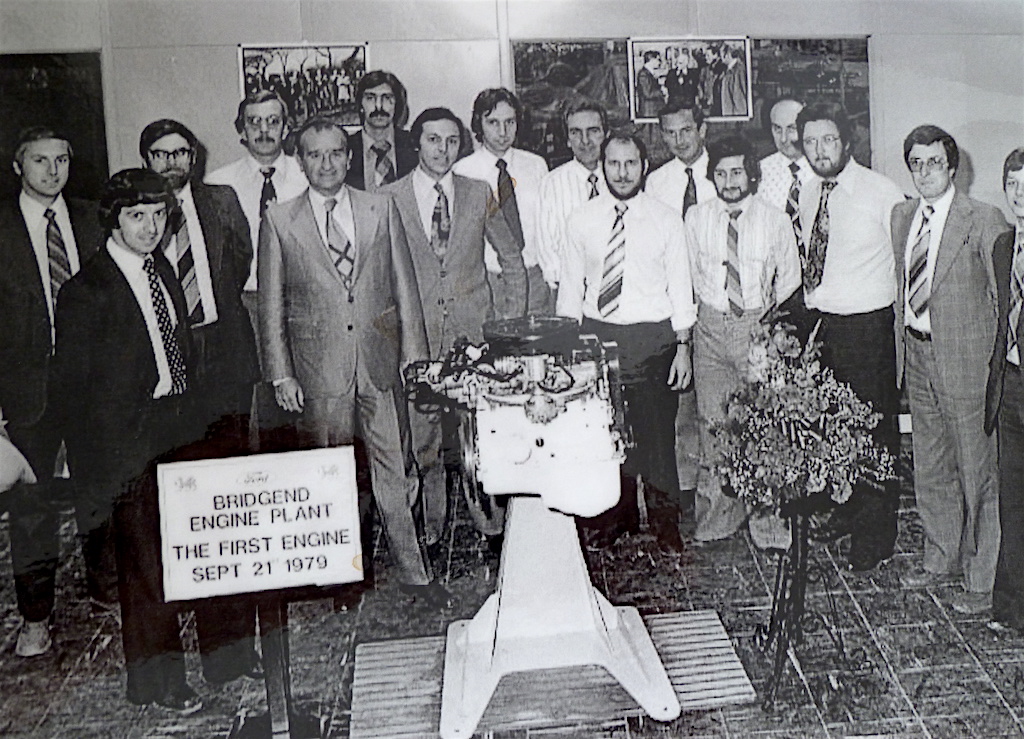
Ford will cut its next stage of investment in Bridgend Engine Plant.
Report by Robin Roberts (and Miles Better News Agency).
It planned to spend £180 M to safeguard 750 new jobs when 250,000 Dragon petrol engines went down the lines from 2017.
But a year after making the announcement, Ford said yesterday it would now put in £100 M to build 125,000 units and protect 550 jobs.
The Welsh Government said it would put nearly £15 M into the project but has not said what level of support it would now give after the announced cutback.
Ford said it still had a “substantial commitment” to the plant, which currently employs over 1,830 people.
But the Unite union said it was “…Deeply concerning and the reduction in spending must raise serious questions over Ford’s long-term commitment to Bridgend”.
The investment was won against competition from Ford plants in Germany, Spain and Romania, but the Dragon is a global engine made in several plants, and with world-wide demand falling for petrol engine as hybrids and electric vehicles increase, there is expected to be some reshaping of production plans.
“Due to the success of our other advanced-technology engines – including the 1.0-litre EcoBoost petrol engine – and anticipated changes in demand in Europe and other markets, we now expect the global volume of the new engines not to be as high as originally planned,” said a spokesman.
Bridgend’s “Flexible manufacturing capability” meant it could adjust rapidly to changing market conditions, “Scaling production up or down to meet future changes in demand as required”.
Unite Wales secretary Andy Richards, who previously worked at the plant and was a convenor there, said, “The halving of production of the new Dragon engine, combined with pre-planned reductions in other volumes on-site places the plant in a very dangerous situation”.
“Strategic decisions such as these are not made overnight. It is Unite’s view that this is all part of a long-term restructuring plan across Ford’s global operations in which its Bridgend operations are to be slowly dismantled.”
He said Unite had been raising concerns with Welsh Government ministers for a number of years and they had been very supportive in trying to secure a long-term future for Ford Bridgend.
“Today’s decision will have been made by its board in Detroit and that is where urgent questions must be raised as to the company’s long-term commitment to its UK operations and its loyal and world class workforce here,” added Mr Richards.
The union met with Ford officials and the Welsh Government yesterday.
The Bridgend plant opened in 1980 and has fought fierce competition to win successive investments in the past worth more than £2.8bn.
It currently makes 250,000 engines a year for Jaguar Land Rover since 1990 but that will end in 2018, adding to further concerns among employees and the union.
Ford could also face issues with its Dagenham diesel plant, which employs about 2,800, as increasingly tough emissions legislation is cutting demand for them around the world.
It supplies diesel engines to JLR models and a new generation of their models will increasingly use 2.0 diesel engines it builds in the West Midlands.
Cabinet Secretary for Economy, Ken Skates said, “The Welsh Government will be working very closely with Senior Executives from Ford Europe, the Management Team and Unions at Bridgend to understand the implications of this announcement and we will continue to support the workforce as well as the Company as much as possible.”
Welsh Automotive Forum CEO Tim Williams added, “While the news that Ford is planning to cut back on its projected investment in Bridgend Engine Plant is disappointing, there is some encouragement that it does not plan to dramatically scale back the jobs the new business will bring”.
“Modern manufacturing requires a highly flexible approach to production, based on demand and resources, and it is hoped that in future the orders for Bridgend engines will rise as the latest generation of fuel-efficient motors arrives.”